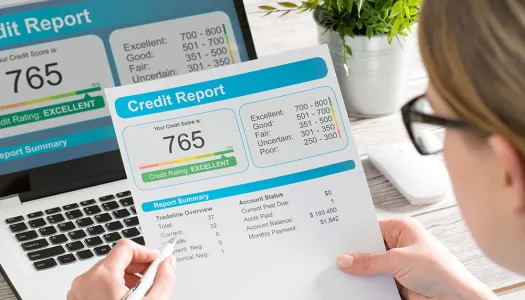Credit Clarity: How the Fair Credit Reporting Act Empowers Your Financial Journey

Have you ever looked at your credit report and immediately felt confused? Does your credit score feel like a mystery you can’t solve? And why are both your credit report and score so important? If you’ve ever asked these questions, you’re not alone—and we’re here to help. Let’s look at how the Fair Credit Reporting Act can be your ally and shape your financial future.
What is the Fair Credit Reporting Act (FCRA)?
The Fair Credit Reporting Act (FCRA) is an important federal law that regulates the collection, dissemination, and use of consumer credit information. Enacted in 1970, the FCRA aims to protect consumers' rights by ensuring the accuracy and privacy of their credit reports.
Some Key Provisions of FCRA
- Access to Your Credit Report: Your credit report is a summary of your credit history. It includes personally identifying information such as your name, address, and Social Security number. It also includes your credit history, including credit card, loans, and any debt or bankruptcies. Businesses use information in your credit report to make decisions about how much money to lend you or whether you can rent an apartment, for example. Monitoring your credit report can help you stay ahead by making sure your credit history is reflected accurately.
- Under the FCRA, you have the right to obtain a free copy of your credit report from each of the three major credit reporting agencies—Equifax, Experian, and TransUnion—once every 12 months.
- In September 2023, these credit reporting agencies agreed to offer free credit reports weekly instead of once per year to encourage consumers to regularly check their credit data and build and protect their financial health.
- You can get your free credit report at AnnualCreditReport.com or by calling 1-877-322-8228.
- Adverse Action Notices: The FCRA mandates that you be notified if adverse actions, such as denial of credit or employment, are taken based on information in your credit report. This notification allows you to review the information that led to the adverse action and to correct any inaccuracies that may have influenced the decision.
- Dispute Process: The FCRA requires credit reporting agencies to investigate consumer disputes regarding the accuracy of information in their credit reports. If you identify an error, the credit reporting agency must conduct a reasonable investigation and correct any inaccuracies within a timely manner.
- Limits on Reporting: The FCRA also limits the length of time that consumer reporting agencies can include negative information on your credit report, typically seven years for most items. This provision ensures that outdated or inaccurate information does not unfairly impact your creditworthiness.
Know Your Rights
The Fair Credit Reporting Act serves as a crucial safeguard for consumers by promoting the accuracy, fairness, and privacy of credit information. By understanding your rights under the FCRA and actively monitoring your credit reports, you can protect yourself from errors and identity theft, and maintain a healthy credit profile.
What to do if you Identify an Error or Inaccurate Information Within Your Credit Report?
If you identify an error or inaccurate information within your credit report, you have the right to dispute it by following the specific credit reporting agency’s dispute instructions. The main credit reporting agencies have their own online dispute center that allows consumers to self-file a dispute, upload supporting documents, and check the dispute status and result. If the error is related to fraud or identity theft, be sure to contact your credit union as well to file an official dispute and get a documented explanation of the issue. For more information, visit the NCUA’s Fraud Prevention Center.
Filing a Consumer Complaint
If you cannot resolve the issue with your credit union, you can contact the NCUA’s Consumer Assistance Center online or at 800-755-1030 for assistance in filing a consumer complaint against your credit union. Visit MyCreditUnion.gov for additional resources on share account disclosures.